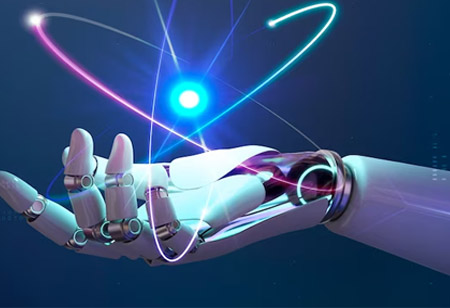By Johnson, Content Writer
 According to PwC, 52% of companies worldwide have decided to use AI algorithms. Artificial Intelligence is an excellent tool for business and a clear example of how hi-tech collaborates with computer science. AI helps make strategic decisions with automated tasks and insights got with the help of big data. However, the developers who created these algorithms are unsure if the data is correctly explained. And some machine-made decisions are affected by human prejudices.
According to PwC, 52% of companies worldwide have decided to use AI algorithms. Artificial Intelligence is an excellent tool for business and a clear example of how hi-tech collaborates with computer science. AI helps make strategic decisions with automated tasks and insights got with the help of big data. However, the developers who created these algorithms are unsure if the data is correctly explained. And some machine-made decisions are affected by human prejudices.
As it’s covered in ExpressVPN’s research dedicated to the AI Bill of Rights, robots and machines should follow the same ethical norms as people. Made to protect people from harm caused by automated systems, the AI Bill of Rights explores such a phenomenon as artificial intelligence prejudice. It’s also known as AI bias.
For example, one person creates software to recognize some patterns in human behavior. The system works well, but the inventor has a particular unconscious bias. For example, he dislikes people who are hardworking yet could be more communicative. On the one hand, today’s business workflow does not leave the gates open for the lack of communication. On the other hand, if the person is gifted and skillful, he can communicate better with his colleagues in a while.
The bias can occur at the stage of training the model, too. For example, the machine is designed to teach students primary historical characters and events. When the student starts studying this topic, he can ask such software anything and get a good answer. However, if the person who wrote the texts and trained the models did not check the facts, the machine could represent the data with the mistakes.
Some biases are also connected to gender stereotypes. For instance, when the machine needs to correlate concepts, such as the term “doctor,” it might use men only. It happens because, on the Internet, there are more male representatives of this profession than female ones.
One more bias is connected to the selection process. In case the information used to train the algorithm over-represents one population, the algorithm will likely outperform other demographic groups for that population. According to Baeldung, it is easy to prevent selection bias. If the scientist prepares data for the model to explore the level of education in a population by administering questionnaires, the governmental bodies have already studied this topic. It means the data proposed to the model should be before any other knowledge.
Indeed, AI is a great system that can study without human intervention. However, there is a need to check AI behavior at different steps to avoid unnecessary behavior, mainly if this AI aims to teach students. It’s also good to follow the principle of Bayesian statistics: “Know thyself, and know the priors.” After all, AI operates using facts and figures, and only you decide which information could explore the topic better.
We use cookies to ensure you get the best experience on our website. Read more...